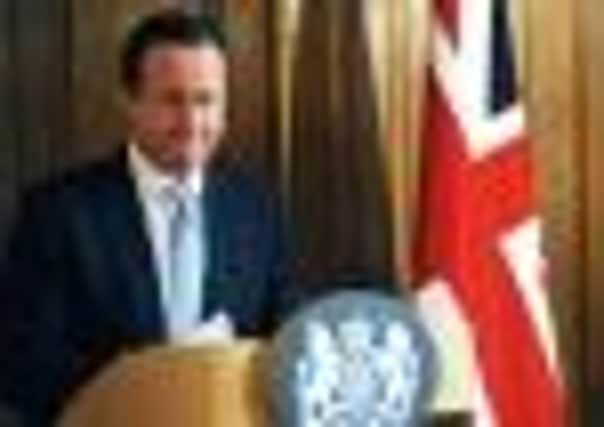Leveson: Scotland set for new press regulation law


The findings of the group that looked at how the Leveson Report should be implemented in Scotland are due to be published today.
It follows the decision yesterday by Prime Minister David Cameron to walk away from cross-party talks in London on the implementation of Leveson, who called for an independent regulator underpinned by legislation.
Advertisement
Hide AdAdvertisement
Hide AdMr Cameron has opposed new legislation on the grounds such state intervention would pose a threat to press freedom, a view shared by the newspaper industry.


In a surprise move, he announced he would publish a Royal Charter dealing with a self-regulatory system that is to be voted on in the Commons on Monday.
The developments at Westminster were accompanied by activity at Holyrood, with Mr Salmond chairing a meeting with representatives of the press and opposition leaders to discuss a Scottish approach to Leveson.
Last night, the Scottish Government announced that the group, chaired by Lord McCluskey, would report its findings today.
The Scotsman understands it will recommend a new law that would set up a Scottish Government press regulator.
The panel, which has been examining the issue since December, believes a Leveson-style approach is key to controlling the press in Scotland.
In common with the Irish Press Ombudsman model, the legislation would be confined to setting up a new body, which would scrutinise the behaviour of the press and ensure it was in line with Leveson.
It is envisaged media groups could club together to set up their own collective organisation, which would be overseen by the regulatory body. But ultimately the new body would have the power to scrutinise all media outlets, regardless of whether or not they were members of any organisation.
Advertisement
Hide AdAdvertisement
Hide AdQuestions are likely to be asked about the cost of setting up such a body.
A Scottish Government spokesman said: “The First Minister joined other party leaders at a meeting with representatives of the Scottish Newspaper Society this afternoon. This meeting formed part of the planned series of engagements with various stakeholders that the all-party group committed to in the wake of the publication of Lord Justice Leveson’s report.
“The meeting gave all of the main party leaders in Scotland the opportunity to listen to the views of the press in Scotland as the Scottish Parliament prepares to respond to the recommendations made by Leveson.”
The McCluskey report could result in Scotland having a different system of press regulation to the rest of the UK.
At Westminster, however, it is still unclear whether Mr Cameron will manage to get his plans for a Royal Charter through par-liament, and SNP MPs could hold the key when it comes to the vote on Monday.
After speculation that a deal was about to be agreed, Mr Cameron walked out of talks with Labour’s Ed Miliband because the two had differences that he said would be impossible to resolve.
Mr Miliband wants a new law to underpin media regulation but Mr Cameron insists this would undermine the freedom of the press.
It is unclear whether Deputy Prime Minister Nick Clegg will tell his MPs to vote with Labour to defeat the Tory proposals. Sources suggested they would.
Advertisement
Hide AdAdvertisement
Hide AdAsked how the Lib Dems would vote, Mr Clegg said: “There are several days to go before votes are held and in those days I will be working flat out speaking to other politicians from other parties to make sure that, whatever David Cameron has decided, that we nonetheless work together to get a proper solution to this difficult problem.”
The SNP has refused to say how its MPs intend to vote or whether they will abstain due to plans for a separate Scottish regulatory body.
Tory MP John Whittingdale, chairman of the Commons culture, media and sport committee, said Mr Cameron appeared to be on course to lose the vote.
Earlier, in a hastily arranged press conference in No 10, the Prime Minister announced the cross-party talks had “concluded without agreement” after a conference call between himself, Mr Clegg and Mr Miliband.
Mr Miliband said Mr Cameron had made a “historic mistake” that did not serve the victims of phone-hacking or the interests of the country.
In a joint statement, executives of major newspaper groups and press bodies said they shared the PM’s frustration at the “hijacking” of talks by those demanding legislation.
But campaigners for press reform were furious. Hacked Off executive director Brian Cathcart said Mr Cameron’s proposal “raises two fingers” to those who had demanded reform in the wake of the phone-hacking.